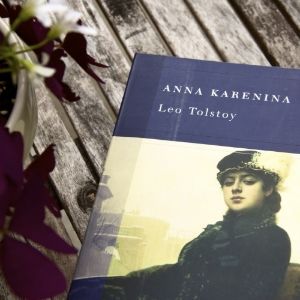I must have scrapped and revised this reflection a dozen times or more, for though it is with great ease that one approaches, indulges in, and converses about
East of Eden, it is with equal parts subtlety and gumption that one claims to have grasped the spectrum of this Steinbeck masterpiece.
The core of
Eden, the framework from which the text is derived and upon which it is fashioned, is Eden. Genesis, that is: the creation and the fall of Adam and Eve, their sons Cain and Abel, their tumultuous relationships (with God), and their ill-fated choices. To call
Eden a "retelling" or "repurposing" of the origin story would trivialize what Steinbeck has accomplished in crafting this mesmerizing work. The text cannot be held to a lamp and traced over Genesis like a commercialized stencil. The Adam and Eve of old cannot be superimposed over the Adams and Eves of
Eden so that one suddenly is enlightened
—"Ah! It has all become clear; how could I not see it before?"
—to the genius of every Steinbeck masterstroke.
Reincarnation (ironically blasphemous in this context) is a more accurate representation of Steinbeck's technique in this novel. From Genesis, these icons of history, these pillars of mankind
, the very origins of sin
, are divinely reincarnated into the men and women of Steinbeck's twentieth-century American landscape. Reincarnated metaphorically, in that the characters are descendants neither of God, nor Adam, Eve, and Cain, but of man. Imperfect man, who imagined such an origin story to explain away man's faults. Imperfect man, who longs not only to distance himself from his past mistakes, but to find, or return to, innocence and perfection, or Eden.
The reincarnation is literal, too, however, as the Trasks and their kin relive the errs of Genesis as though they are possessed of spirit. More recent novels that I am familiar with,
Possession by A.S. Byatt and
The Hours by Cunningham, have similarly possessed characters who inherit the actions and wills of their predecessors (likely influenced by Steinbeck, among others). Steinbeck's characters are not ignorant of the comparisons (evidenced during their reading of Genesis in part two), nor do not shy away from confronting what hand fate plays in their plot. And that concept
—fate
—is
Eden's great crossroads.
Fate, or agency.
Does man bend to the whims of his environment and his heredity: to the very whims of God? Or can he chose to deviate from these obstacles, this disastrous pattern, that would doom him to repeat The Fall?
Timshel...




